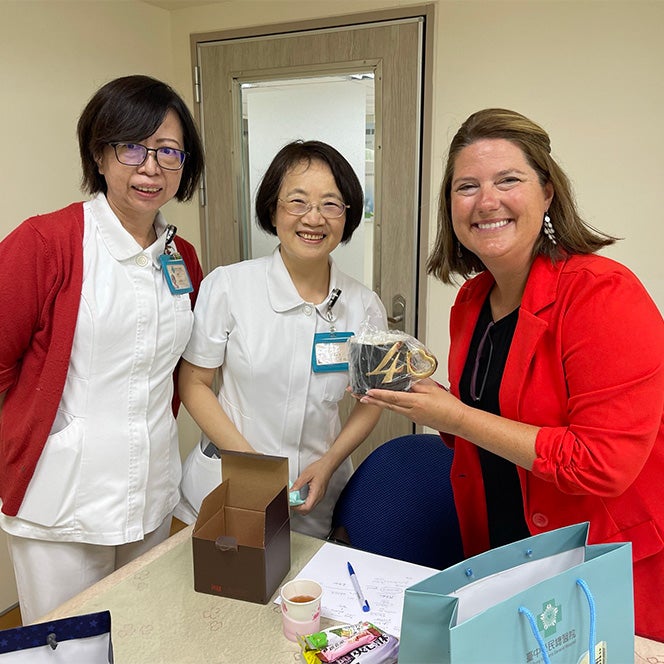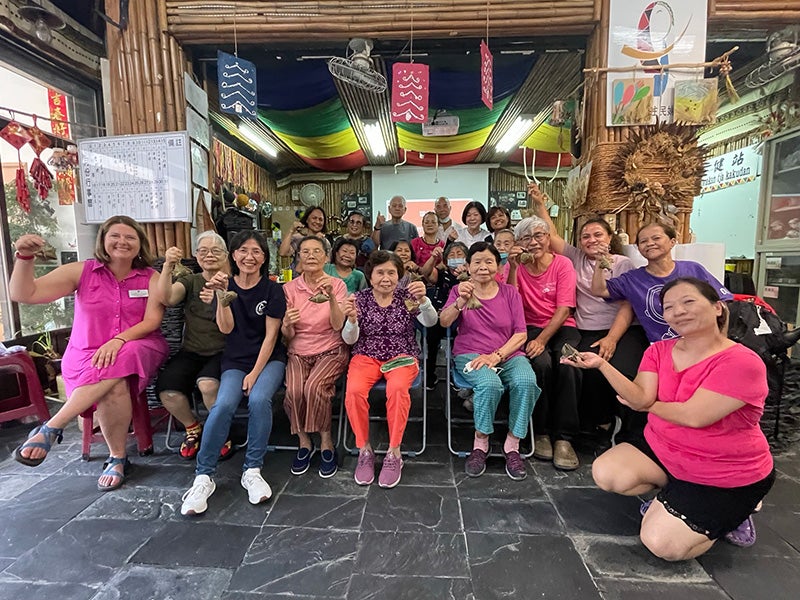In the summer of 2023, 11 educators from Boise State and local K-12 schools traveled to Taiwan as part of the Fulbright-Hays Title VI Group Project Abroad program. Here, one of the participants, Renee Walters, shares her experiences.
Walters is a clinical associate professor in the School of Nursing. Her part of the project aimed to understand cultural contexts and healthcare norms that influence how providers might interact with patients of Taiwanese descent.

One cultural difference that stood out to her was how the Taiwanese approach aging and encourage physical activity at all ages. Many people begin their day with exercise in public, so Walters did, too. At morning tai chi class, she saw people of all ages and abilities participating, even if that meant some simply clapped along or tapped their foot.
“People are willing to exercise in the park regardless of skill, regardless of mobility,” she said. “There was no shame in being out and doing the best that you could, and at all ages.”
She contrasts this cultural perspective with America’s value of trim, youthful fitness.
“[Americans] embrace people being active and fit with the caveat that they look as we think active, fit people should,” she said. “Which I believe is a barrier for everyday people to say, ‘You know what? I can be a part of that, and it’s okay if I’m a part of it, even though I don’t look like a Lululemon commercial.’
I think that was the poignant part of it. It was really embracing the fact that your aged body is something that is beautiful and worth seeing, and you deserve a place still, and it’s going to be right here in the middle of our community,” she said.
Turning an experience into shared resources
A significant part of the group project is developing language understanding, so after tai chi at 6:30 a.m., Walters and other participants caught the bus to Providence University for Mandarin classes. Walters had never studied Mandarin before arriving in Taiwan, admittedly finding it a bit intimidating.

“That was a really good experience for me,” she said. “I had an appreciation for the difficulty and the challenges our non-English-speaking students experience, and a little bit of the humility that comes with not being a native speaker.”
Perhaps the most significant part of the experience was creating a “deliverable” that could be utilized after the trip. Walters is in the process of creating an open-access learning module for anyone wanting to learn about or teach the cultural context of Taiwanese healthcare.
She is also creating a communication resource for providers interacting with Mandarin-speaking patients before a translator is available. Walters said the goal is for providers to be able to show on a basic level: “‘I care, and I acknowledge that your language is not mine, but I want to make sure that you’re safe and cared for,’” she said.
Aside from broadening her understanding of the world, Walters is also grateful for how the program expanded her professional network. The program reminded her of the breadth of educators who work not just at Boise State, but also around schools in the Treasure Valley.
“It opened up some potential for collaborating on future projects,” she said. “That was really enlightening for me.”